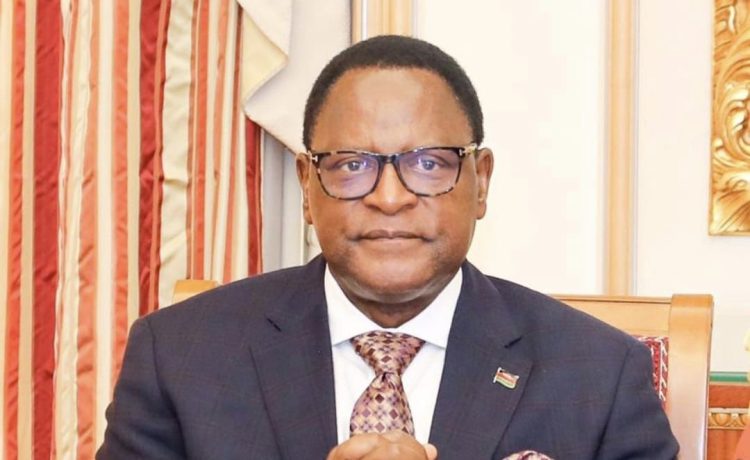Editorial: Shire Times
Malawi has enjoyed peace and stability since attaining political independence in 1964. Incidences of conflicts, that have nevertheless not blown out to extreme violence, have, however, been prevalent throughout the period from colonial period to present. Some of the tensions and conflicts in present Malawi have their genesis in the one-party rule that was consolidated from the immediate post-independence era to early 1990s.
This period was characterised by extreme transgressions on civil liberties, disregard of the rule of law, oppression and marginalization leading to extreme resentment among Malawians, which led to pressure for change to multi-party democracy. It cools our hearts to observe that your leadership is an antithesis of these ills. Yours is a leadership of togetherness and genuinely democratic. This is why you found it necessary to apologize to all Malawians for the unfortunate transgressions on human rights in the era preceding our democracy.
Recent trends in the multi-party era have also unveiled a wide range of threats to the sustenance of peace and unity which emanate from the prevalence of regionalism and nepotism in the distribution of development resources and benefits; religious and cultural diversity; widespread poverty and inequality; political transitions and pressures; infringements of civil liberties and political rights; and pressure on socio-economic and development rights, including the lack of political and economic opportunities for women and youths.
Truth be told, transgressions upon human rights come out worse off when perpetrated during multi-party era. It passes a message of adamant brutality. A vowed spirit of infringement and damnation of checks that the civilized era has innovated. Such transgression is the most dangerous and the perpetrators most barbaric. We have seen this with DPP regime which has always been ready to showcase its brutality giving a middle finger to protection that democracy offers. To observe that your personality and leadership style seeks to engrave the protections that democracy offers, it is something that sets you apart. You provoke more and more appetite in the citizenry for your leadership.
In July 2011, and this was during democracy, the country faced civil unrest in the major cities of Blantyre, Zomba, Lilongwe and Mzuzu amidist civil society-led demonstrations over the state of governance during that period. The civil unrest led to clashes with the State police, resulting into deaths, injuries and destruction of property.
As recent as 2019, the country was again thrown into a state of disorder over the management of May 2019 Presidential election, of which outcome was successfully challenged in the court(s) of law that nullified the outcome and ordered the fresh Presidential election of which result is this new administration. The demonstrations that ensued led to loss of life and widespread destruction of property, the scenario which nearly escalated into extreme violence.
These recent challenges point to the need for the country to develop and institutionalize proactive and coordinated responses to conflicts in order to sustain peace and unity.
Experts have unanimously submitted that the country needs an enabling national policy and legal framework to necessitates the establishment of the National Peace Architecture (NPA). Such an architecture offers a central institution to formally coordinate peace building initiatives and ensure collaborative and proactive conflict management approaches in in the country.
The levels of success of existing institutions that engage in peace building and conflict management interventions are varied. Gaps are also existing and these include lack of gender sensitive national peace architecture; absence of clear roles and operating procedures; weak peace building and reconciliation initiatives; inadequate dialogue, lack of capacity building and peace education and awareness programmes, limited research and weak understanding of the root causes of conflicts that threaten peace and unity in Malawi; unguided Government peace building responses as well as lack of effective communication strategy. These gaps required immediate attendance and a deliberate policy that seeks to address these issues.
Lo and behold. Yours is a conscience administration that spreads its ears and sight to the citizenry and capture their concerns and aspirations. We believe it is this tendency that makes you a listening President who is always ready to respond through implementation of that which the citizenry yearns for. It was hope-giving hearing you stating that you have invested full political will in this initiative. We say thank you.
We are in full agreement with you when you say a Commission of this nature is key, as it is hoped to provide a strong institutional framework within which peace-building initiatives can be coordinated with consistency, thus nipping any threats to our nation’s peace and unity in the bud.
We further agree with you when you say events in recent memory and at various points in our history should give us sufficient cause and pause to see the importance of having this safety net. It is indeed true we may not have had any armed conflict in our country, but as we all know, there have been many occasions on which our people’s religious, regional, tribal, political, and moral sensibilities have either been intentionally or inadvertently stoked and provoked to destabilize the country.
It must be a commendable ingenuity therefore for your leadership to contemplate that if we are going to safeguard our nation’s peace not only to facilitate the enjoyment of our freedoms, but also to create the conditions necessary for sustaining development and attracting investments in pursuit of achieving the Malawi 2063 Vision, then we must become methodical and intentional in our active construction of the pillars of peace. We submit that this Commission is purely methodical.
We have nothing to subtract from your view that since the objective of building peace is to safeguard the enjoyment of civil liberties and economic rights of all Malawians, it is imperative that we have this Peace and Unity Commission.













